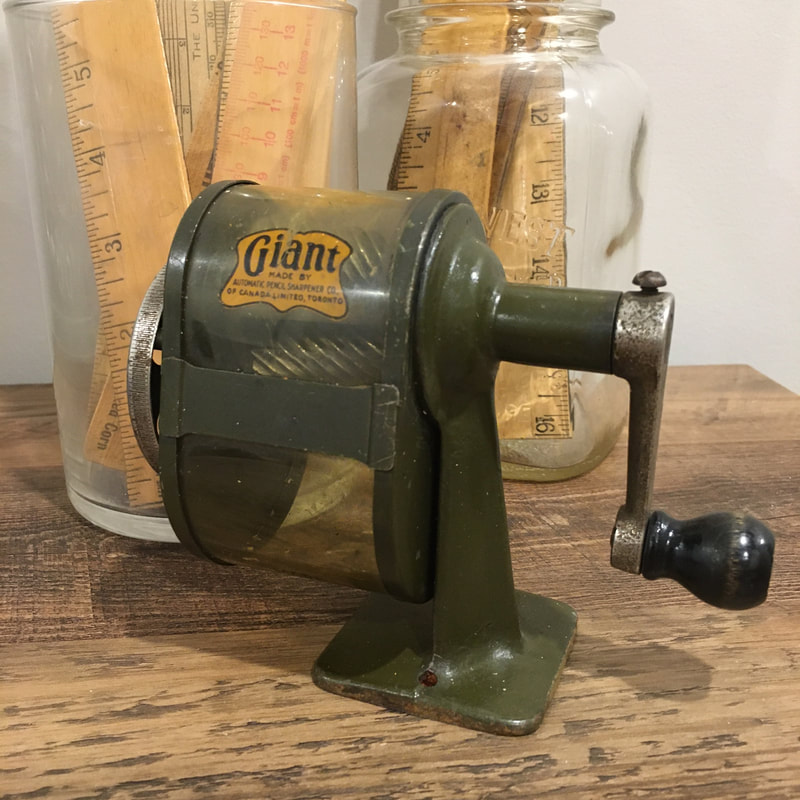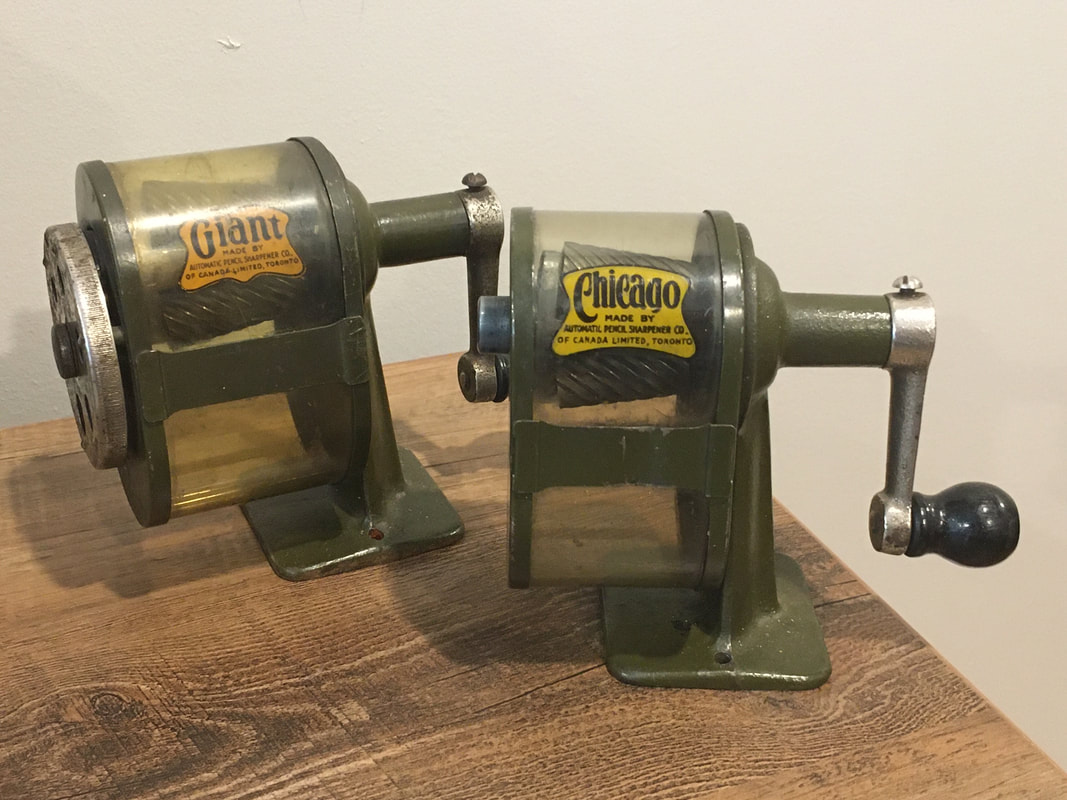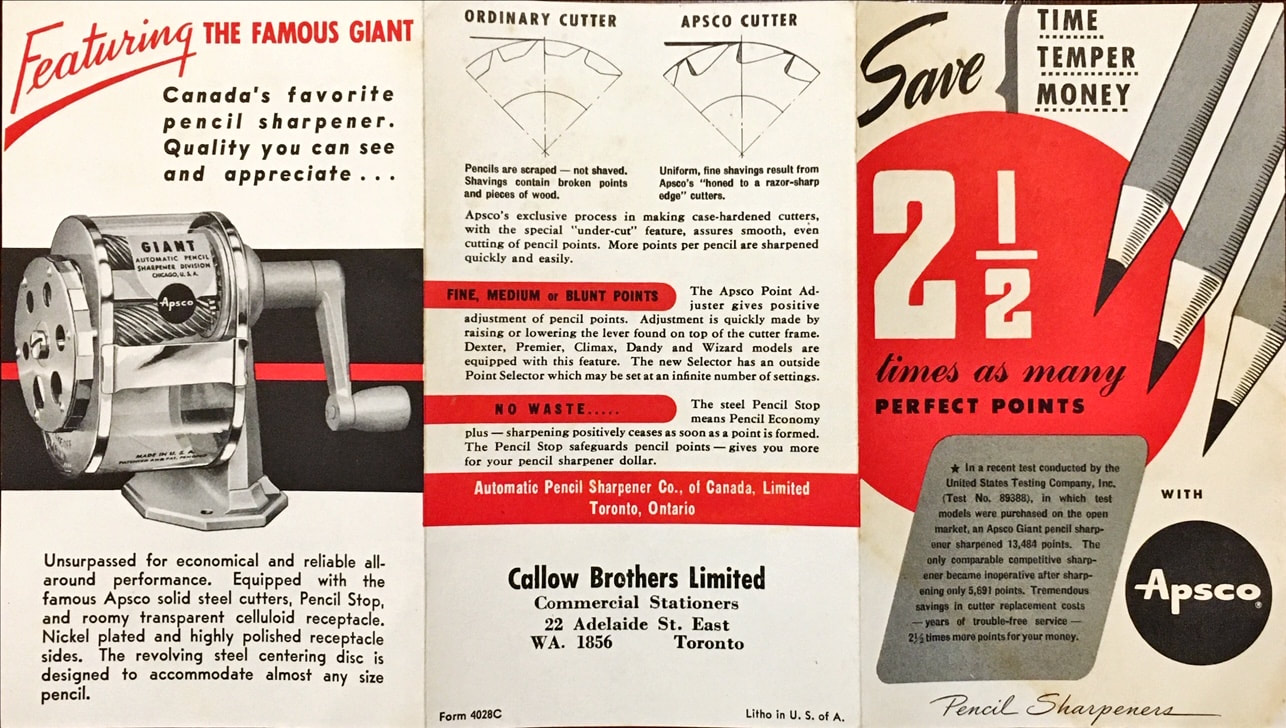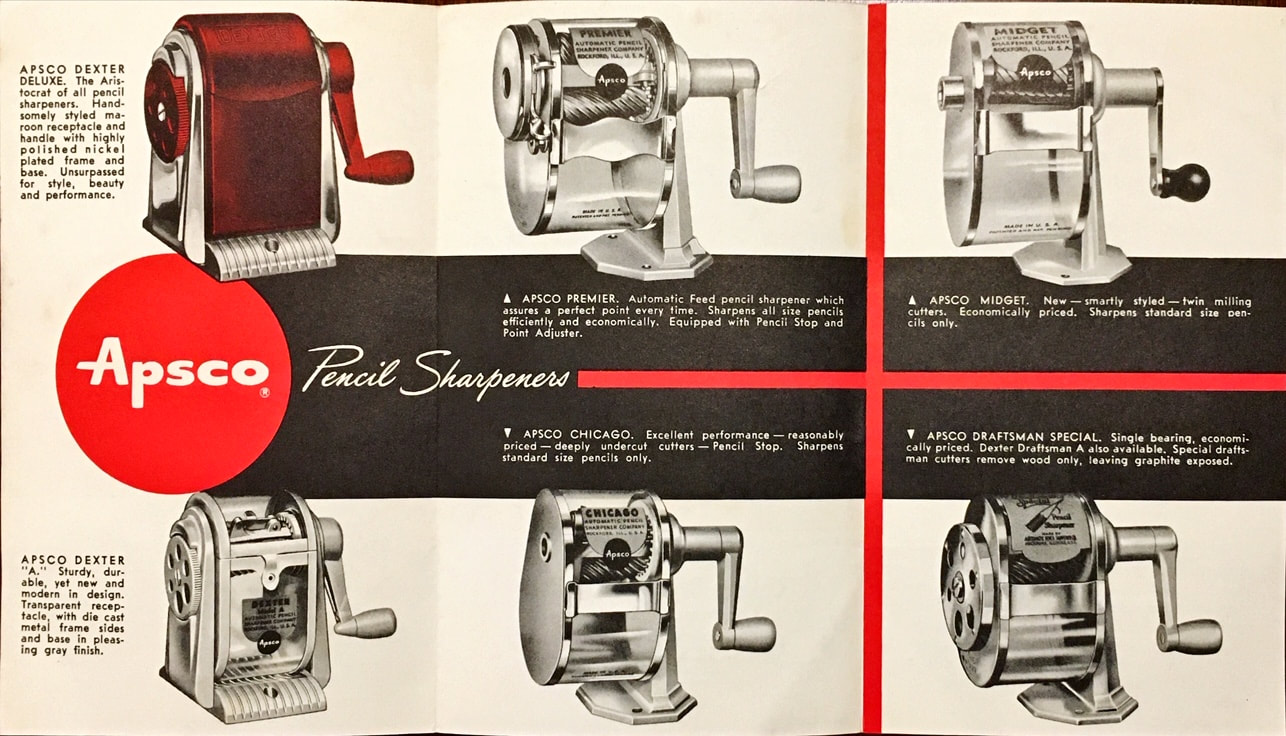APSCO Products Canada
Automatic Pencil Sharpener Company of Canada Limited was incorporated in Canada on January 17th, 1933. This company was a subsidiary of the US company based in Chicago, IL which started in 1905. This is around the time that several US pencil manufacturers opened subsidiaries in Canada. The company would be renamed APSCO Products (Canada) Ltd in August of 1953. It made a variety of office products including pencil sharpeners, hole punches and staplers. In 1964 the
An article from the National post from November 28, 1964 notes the sale of this company:
"U.S. Firm sells subsidiary - Apsco Products (Canada) Ltd., a supplier of stationary items, was acquired from its American parent, Apsco Products Inc. on Oct. 27, by Ralph M. Roger of Toronto. He had been manager of the Canadian operation since 1953. Gross annual sales to retail stationers are about $1 million. Products sold include pencil sharpeners, staplers, punches, etc. American firm remains an important supplier of these items to Canadian company."
"U.S. Firm sells subsidiary - Apsco Products (Canada) Ltd., a supplier of stationary items, was acquired from its American parent, Apsco Products Inc. on Oct. 27, by Ralph M. Roger of Toronto. He had been manager of the Canadian operation since 1953. Gross annual sales to retail stationers are about $1 million. Products sold include pencil sharpeners, staplers, punches, etc. American firm remains an important supplier of these items to Canadian company."
Sharpeners
The most well known product that APSCO sold were pencil sharpeners. The most common were the Giant and the Chicago. The Chicago, named for the city the company was founded in, was a budget sharpener with just one size pencil hole. The Giant had six different sized holes for pencils of different diameters. Both of these sharpeners had dual rotating cutters.




